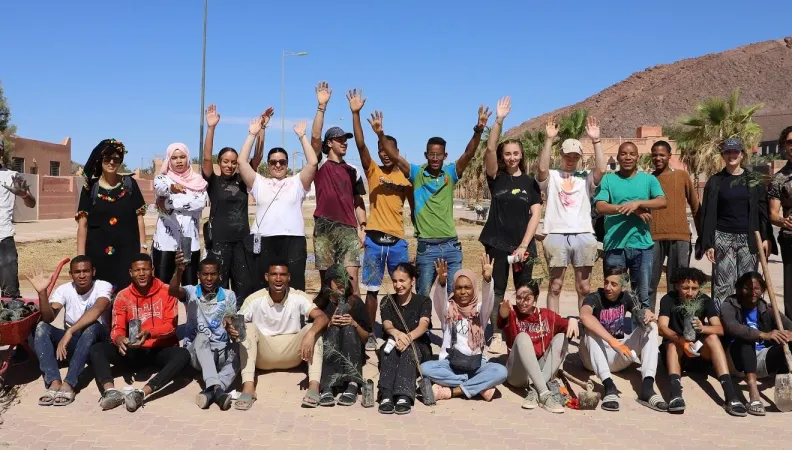Share the page
Findings from a Study on Citizenship Education in Emerging and Developing Countries
Published on

AFD and the Education for Citizenship and International Solidarity (ECIS) consultation group have published a report on ECIS organizations in Africa, Asia and Latin America, providing a clearer picture of their respective roles and the educational tools used.
Education for Citizenship and International Solidarity (ECIS) is an approach designed to help achieve one of the targets set out in the United Nations’ Sustainable Development Goals (SDGs): to ensure that, by 2030, all learners acquire knowledge and skills needed to promote sustainable development. Nevertheless, its scope for raising awareness goes beyond schools, aiming to motivate all citizens to learn about and understand these issues, so they can take action for change.
Until recently, ECIS initiatives have mainly targeted French citizens. However, organizations in emerging and developing countries, France’s collaborative partners, are now rising to this challenge in a variety of ways, with the aim of raising citizens’ awareness of global issues (such as climate change, migration, and wealth distribution) and thus inspiring them to take action, particularly young people.
To gain a better understanding of these organizations, Agence Française de Développement (AFD) and the Education for Citizenship and International Solidarity (ECIS) consultation group, made up of around sixty stakeholders, including public authorities, associations and educational networks, commissioned a report to help identify and characterize the wide variety of approaches to “Education for Citizenship and International Solidarity (ECIS)” in practice.
Read the report on Education for Citizenship and International Solidarity Organizations in Emerging and Developing Countries (in French)
A wide variety of approaches
This overview of ECIS organizations in emerging and developing countries, produced by Eval4change and presented on November 7, should also encourage major players to work together to develop new ideas and collaborative projects. Based in Africa, Asia and Latin America, these stakeholders come from a wide range of fields, such as media, volunteering, popular education, research, defense of human rights, indigenous communities and groups, ecology and local authorities.
The report’s first finding is that no single term can encompass the diverse range of approaches, all of which are either specific to the local context (education for peace in conflict zones) or to the type of organization involved. The most commonly applied concepts are Education for Sustainable Development and Global Citizenship Education (GCE).
“There are as many educational methods and tools as there are organizations,” says Noura Elouardi, Executive Coordinator of the Center for Research Innovation and Development (CRID). “Strategic priorities may be different between two organizations. Practices are tailored to their target audience, the local context and community, and priority issues in the region, as well as to the history and cultures associated with each organization.”
“Projects are often more pragmatic”
“However, regardless of whether projects concern popular education, community education, ECIS or GCE, the aim remains the same: ensuring that individuals and communities have more power to transform societies and achieve greater social and environmental justice in particular,” says Noura Elouardi.
See also: Joint Report on the Essential Role of Education for Citizenship and International Solidarity
The study also found that the term “international solidarity” does not accurately describe the way these organizations view their work. First and foremost, their actions for solidarity are based on a community or local level. Their efforts may take on an international dimension when forging alliances with other partners, but they do not use these two terms together, as they are more closely associated with development cooperation.
“In emerging and developing countries, educational projects are often more pragmatic, focusing on practical solutions to local problems, like facilitating access to drinking water, improving food security and increasing resilience against disasters,” says Madrick Anicet Tonakambio, President of the Sterna Africa association.
“Communication between organizations and greater mutual understanding are the key to sharing tools, pooling resources and improving practices. These factors are also essential to gain a better understanding of global challenges and their causes, and to accurately and adeptly tackle major issues and challenges, thus helping to build relevant and effective solutions from and with individuals and communities,” says Noura Elouardi. Madrick Anicet Tonakambio echoes this view: “Greater interaction between stakeholders is essential.” The aim of this report on “Education for Citizenship and International Solidarity” organizations in emerging and developing countries is thus to support this approach.
